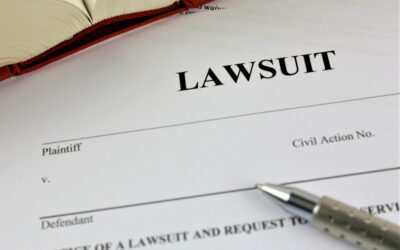
The role of the prosecutor in a DUI case is complex. One primary function of the prosecutor in a DUI case is to present evidence demonstrating that an individual was in control of a motor vehicle with a blood alcohol concentration (BAC) above .08%. If you want to learn more about how prosecutors handle DUI cases, then you should speak to a DUI lawyer in Los Angeles.
The standard of proof in a criminal case is “beyond a reasonable doubt.” This means there must be no reasonable doubt that the defendant is guilty of the alleged conduct. A prosecutor will attempt to present evidence showing beyond a reasonable doubt that the defendant was guilty of driving under the influence.
The Most Common Types of Evidence Used in DUI Cases
A prosecutor may use many different types of evidence during a DUI case. The facts of the case and the availability of evidence will determine how the prosecutor presents the evidence. The following are some of the most common types of evidence used in DUI cases in California:
- Any open containers found inside the automobile of the defendant
- Field sobriety test results
- Breathalyzer readings
- Blood sample tests
- Oral testimony from the officer who arrested the defendant
Many other types of evidence may be presented in a DUI case. However, many of these cases follow common patterns, and these are the most frequently used categories of evidence in DUI cases. It is essential to develop a case strategy to present counterarguments regarding the unreliability of breathalyzer readings and other tests.
The Penalties Associated with a DUI Conviction
A DUI conviction can affect your personal and professional life. A professional may lose their license, and dealing with a criminal conviction may cause anxiety, depression, and post-traumatic stress disorder. The following are some of the most common penalties associated with a DUI conviction:
- Mandatory substance abuse counseling
- Fines
- Probation
- Community service hours
- Suspension of driver’s license
- Jail sentence
The penalties you may face with a DUI conviction can affect your ability to get to work and pay your bills. It is difficult to determine the extent of any penalties you may face as the facts of your case may dictate more severe or less severe penalties.
DUI Cases and Evidence Presented by the Prosecutor
A prosecutor must present evidence of driving under the influence before charges can be filed against the defendant. Every element of the crime must be proven beyond a reasonable doubt. This is a high burden for the prosecution to meet, and therefore, all DUI prosecutions are substantiated with different types of evidence.
The following elements must be proven beyond a reasonable doubt for a prosecutor to obtain a DUI conviction in California:
- The defendant operated a vehicle
- The defendant was under the influence of alcohol, drugs, or both alcohol and drugs
- The defendant’s blood-alcohol was 0.08% or more
The prosecutor needs to use actual evidence to prove the individual elements of the crime. A prosecutor cannot fabricate evidence or make unsubstantiated claims about a defendant. Also, the prosecutor must satisfy the burden of proof.
Evidence Which Is Helpful to Prosecutors in DUI Cases
Prosecutors often focus on oral testimony from the officer and the reports of any tests given to the defendant. Blood tests, breathalyzer tests, and field sobriety tests are all used by officers to assess the defendant’s blood-alcohol level. Also, prosecutors will use statements the defendant made to the officer before, during, and after the arrest.
The arresting officer’s report also will contain information that may be useful to the prosecution. The reasonable suspicion the officer had for pulling the defendant over may be relevant to the prosecution’s case-in-chief. Body-worn camera footage and audio recordings may also be used by prosecutors to prove that the defendant is guilty of DUI.
The Evidence that Must Be Turned Over to a Defendant in a DUI Case
Under California law, six types of evidence must be turned over to the defendant during a criminal case. The following are brief summaries of the six types of evidence:
- Written or recorded statements of witnesses, including reports produced by expert witnesses and those conducting physical examinations
- All exculpatory evidence
- Documents and information regarding felony convictions of material witnesses
- Relevant evidence obtained during a criminal investigation
- Oral and written statements made by the defendant
- Addresses and names of witnesses that will be called at trial
A DUI lawyer can make sure that the prosecution does not withhold any of this evidence. Also, an attorney can draft motions to suppress evidence that should not be admitted against you depending on the facts of your case. It is essential to analyze the evidence possessed by the prosecution to detect any weaknesses in their case.
Examining the Evidence Relevant to Your DUI Case
One important benefit associated with retaining a DUI lawyer is having an advocate who can examine the evidence presented against you. No prosecution is devoid of weakness. Every DUI case has elements that make it less likely the prosecution can prove every element of the crime beyond a reasonable doubt.
However, it takes time to review all the documents, video recordings, and other evidence relevant to your DUI case. If you are facing criminal charges, then it is essential that you seek out legal representation early on in your case. If you wait too long to seek out the assistance of counsel, then you may not be able to examine the evidence presented against you and discover weaknesses in the prosecution’s case-in-chief.
You Have the Right to Legal Representation if You Are Facing Criminal Charges
Risking a criminal conviction may cause you to experience stress, anxiety, and depression. You may worry about your reputation and the collateral damage that will occur if you are convicted. If you want to learn about the best ways to defend yourself against the prosecution in a DUI case, contact us today.
You do not have to stand alone. We can scrutinize the evidence presented against you. Reach out to us today to begin developing an effective case strategy.






